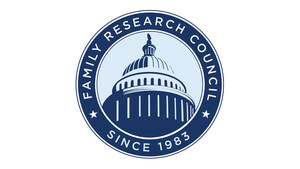WASHINGTON, Sept. 22, 2014 /PRNewswire-USNewswire/ -- Today, Family Research Council (FRC) filed an amicus brief in the U.S. Supreme Court on behalf of the petitioners, Pastor Clyde Reed and Good News Community Church, in the case of Pastor Clyde Reed and Good News Community Church v. Town of Gilbert, Arizona and Adam Adams (Docket # 13-502).
The case involves a Gilbert, Arizona sign ordinance that discriminated against certain signs based on their content. In this case, local law had regulated signs by category – political, ideological, and directional – and had placed different restrictions on signs based on what category they are in. Directional signs were placed under more severe restrictions. Good News Church and Pastor Reed needed to announce the times and locations of their services, but because their announcement signs (which directed people to a public school where services were being held) were deemed directional, the church was severely hampered in publicizing its message.
Subsequently, the Ninth Circuit Court of Appeals ruled against Pastor Reed, who then took his case to the Supreme Court, which has agreed to hear the case.
Attorney Travis Weber, the Director of FRC's Center for Religious Liberty, gave the following explanation of the case:
"In our brief, we argue that the town does regulate speech differently based on content: politics, ideology, and directions are all matters of differing content. Well-established Supreme Court jurisprudence clearly bars content-based restrictions on speech unless strict scrutiny is met. Because there are content-based restrictions on speech in this case, the Supreme Court should send this case back to the district court to determine if the town can meet strict scrutiny.
"A win for Pastor Reed and Good News Church in this case will help advance a strong interpretation of First Amendment free speech rights, which is good not only for small congregations like Good News Church, but for all who wish to speak free from government interference. Protecting an open marketplace of ideas in which all voices are protected and can speak freely is what the First Amendment is all about. That's what we are seeking here, and we hope the Supreme Court will agree," concluded Weber.
Family Research Council's amicus brief can be downloaded here.
The case will be argued in the upcoming October 2014 term of the U.S. Supreme Court. The oral argument date for this case has not been announced yet.
Logo - http://photos.prnewswire.com/prnh/20080930/FRCLOGO
SOURCE Family Research Council
WANT YOUR COMPANY'S NEWS FEATURED ON PRNEWSWIRE.COM?
Newsrooms &
Influencers
Digital Media
Outlets
Journalists
Opted In




Share this article